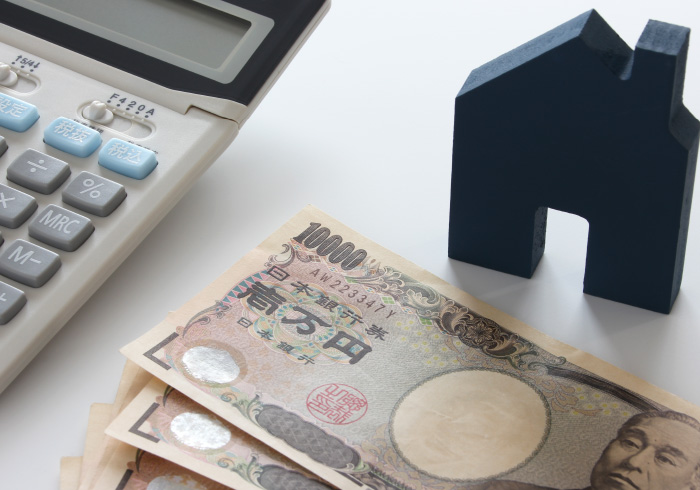How to Find Housing
Many schools have an international student office, through which they help international students look for housing. They will not only provide information on dormitories and private apartments, but also introduce local real estate agents. So contact your school to consult about housing.
-
- Finding Accommodation through School
- Many schools accepting international students introduce private accommodation for students located in the vicinity of the school. Inquire at your school’s office in charge of international students.
-
- Finding Accommodation over the Internet
- You can search for accommodation online by area, school name, nearest station, monthly rent, etc. If you find a property you like, you can make an inquiry over the Internet or visit the real estate agent directly.
-
- Finding Accommodation through Real Estate Agents
- Real estate agents introduce rental housing such as apartments and condominiums. Even if you find a property over the Internet, you have to visit the real estate agent to conclude a lease agreement.
Deposit and Key Money
When you rent an apartment in Japan, you may have to pay a deposit (shikikin) and key money (reikin) in addition to brokerage fees and insurance fees. All these fees must be paid together by cash or by bank transfer at the time of concluding a lease agreement. The amount of fees varies depending on the real estate agent or property. Some rental properties require no deposit or key money. So be sure to check with your real estate agent.
-
- What is a Deposit (Shikikin)?
- A security deposit collected by the landlord at the signing of a lease agreement. A deposit is used for cleaning or repairs necessary to restore the rental unit to its original condition after the tenant moves out. When the rental unit is vacated, the landlord will deduct cleaning and repair fees from the deposit and return the balance to you, so be careful not to cause damage in the rental unit. Usually, the amount of deposit is equivalent to two or three months' rent.
-
- What is Key Money (Reikin)?
- Key money is the money that the tenant pays to the landlord at the signing of a lease agreement. Key money will not be returned when moving out. Usually, the amount of key money is equivalent to one or two months' rent.

Concluding a Lease Agreement
Generally when renting a private apartment in Japan, a joint guarantor is required. If you have failed to pay the rent before the due date or damaged fixtures in the room without paying for its repair costs, the landlord will demand your joint guarantor pay for the overdue rent or repair costs. If you cannot find a guarantor in Japan, you can join the Comprehensive Renters’ Insurance for Foreign Students Studying in Japan (Ryugakusei Jutaku Sogo Hosho), which accepts your school as your joint guarantor.
Comprehensive Renters’ Insurance forForeign Students Studying in Japan
After Moving into Rental Housing
After concluding a lease agreement and moving into your home, you will need to complete the procedures to start using water, electricity and gas, as well as subscribing for fire insurance. Inquire to your real estate agent for more details.
Procedures at the City Office
At ward offices, procedures including those for residence services administered by the City of Kitakyushu can be completed. After moving to Kitakyushu, first of all please complete the registeration procedures at the Resident Division at the ward office of your ward. At ward offices there are also organizations that provide consultation on problems that you may encounter in daily life.
Dispatching of Administrative Interpreters (free-of-charge, reservation required)
Administrative interpreters are dispatched to ward offices and schools within the city to assist with procedures. Advance reservation required.
For more detailed informationGarbage Disposal
Japan has strict rules regarding garbage disposal. Failure to follow them can be a source of conflict with neighbors. Be sure to separate your garbage properly (combustible garbage, empty cans/bottles, PET bottles, oversized garbage, etc.) and dispose of it in the specified locations at the specified times.
For more detailed information
Procedures to Complete before Leaving Japan
If you leave Japan and return to your home country, you must complete various procedures, such as moving out of the rental unit, cancellation of utility services, mobile phone, etc. Be sure to complete all the necessary procedures before leaving Japan.
- Vacating your Housing
- Notify your landlord or real estate agent one or two months prior to your moving-out date, or by the deadline specified on the lease agreement, and complete the procedures to cancel the lease. You should also contact the relevant gas, electricity and water companies to suspend services and settle any bills. Depending on the room conditions, you may have to pay cleaning and repair costs. Clean your room thoroughly to return the room to the same condition as it was when you moved in.
- Disposal of Unwanted Items
- Before moving out, you have to dispose of unwanted items. Large items such as furniture and bedding should be disposed of as oversized garbage (sodai gomi). Dispose of garbage according to your city’s garbage disposal rules.For more detailed information
- Other Procedures
-
- [Bank]: Bring your passbook and cash card to your bank and complete the bank account closure procedures. If you have paid utility bills by direct debit from your bank account, do not forget to settle all outstanding bills (if any) before closing your bank account.
- [Electricity, gas, water]: Contact the electricity, gas, and water companies, and complete the procedures to stop services and settle outstanding bills.
- [Mobile phone]: Cancel your mobile phone contract at the mobile phone carrier or distributor.
- [National Health Insurance]: Complete the procedures to withdraw from the National Health Insurance Plan at your local municipal office. Return your health insurance card and pay any unpaid insurance premiums.
- [Residence Card]: Return your Residence Card to the immigration officer at the airport when leaving Japan. If you have a Re-entry Permit (including a Special Re-entry Permit), you do not need to return your Residence Card when leaving Japan.




